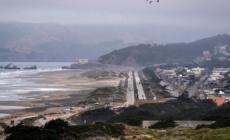-
Ukraine Drones Hit Russian Hideout in War’s First Unmanned Ground Attack - 32 mins ago
-
USMNT & USWNT: State of the Union Awards | SOTU - 34 mins ago
-
Do you need a VPN at home? Here are 10 reasons you do - 42 mins ago
-
Who’s the politician at the center of latest China influence scandal? - about 1 hour ago
-
Family Plans to Adopt One Golden Retriever, Then They Find His Sibling - about 1 hour ago
-
How impressive was Justin Herbert against the Broncos? | First Things First - about 1 hour ago
-
The fight to protect a reindeer species - 2 hours ago
-
Plans to transform an iconic San Francisco highway into a park ignite recall furor - 2 hours ago
-
Winter Storm Warning for One State Issued as Nine Inches of Snow Forecast - 2 hours ago
-
Do the Baltimore Ravens deserve to be 6.5-Point favorite over the Pittsburgh Steelers? | First Things First - 2 hours ago
Orbán’s wake-up call for Europe
Prime Minister Viktor Orbán outlined a series of topics for Hungary’s EU Council Presidency in the European Parliament on Wednesday. Applause, heckling, sharp exchanges and fierce criticism accompanied his presentation of the Hungarian Presidency’s programme.
At his press conference the previous day, Orbán addressed competitiveness and the ongoing debate on illegal migration. He proposed the adoption of a new European competitiveness agreement, regular Schengen summits on migration and border management and the full accession of Bulgaria and Romania to the Schengen area before the end of the year. Orbán called for asylum procedures to be carried out in external ‘hotspots’ in countries outside the EU in future and for applicants to no longer be allowed in beforehand. He campaigned for EU enlargement to include the countries of the Western Balkans. The Hungarian Prime Minister defended the continued existence of cohesion policy, as three out of four citizens live in regions that do not even reach half the average standard of living.
‘I am here to sound a wake-up call after Presidents Draghi and Macron, because the EU is facing numerous, fateful challenges,’ Orbán began his speech. The EU must change and the Hungarian Presidency wants to be the voice and the catalyst for change. He emphasised that the necessary decisions must be taken by the member states and the EU institutions.
Europe left behind
Over the past two decades, the EU’s economic growth has been consistently slower than that of the USA and China, the EU’s productivity is growing more slowly than that of its competitors and its share of global trade is declining. The EU is not an attractive investment destination, as companies are faced with electricity prices that are two to three times higher than in the USA, and gas prices are even four to five times higher here. According to Orbán, the green transition alone is not a solution to this problem. The reasons for the competitiveness gap are the lack of digitalisation and too little investment in R&D.
Orbán: ‘There is no simple solution’
‘I don’t want you to think that there is an easy solution, because it is more difficult to restore industrial capacity than to maintain it,’ warned Orbán. ‘We should not be under the illusion that the green transition alone offers a solution to the problem of energy prices.’ The Prime Minister pointed out that half of European companies see energy costs as the main obstacle to investment, while production in energy-intensive industries has fallen by 10-15%. The European Green Deal was based on the creation of new green jobs. However, the sense of the initiative would be called into question if decarbonisation led to a decline in European production and job losses. Orbán pointed out that one of the most glaring examples of the lack of EU planning is the automotive industry, where climate policy is being implemented without an industrial policy.
Immediate steps that can be taken include simplifying legislation, helping Member States to develop green policies and the need to expand trade options.
Battery industry a good example
The success of the European battery industry could be a good example for the future: ‘Public support for battery technology has increased by an average of 18% over the last ten years and has been a key factor in strengthening Europe’s position. Today, Europe ranks third behind Japan and South Korea in terms of patent applications for storage technologies.’
Criticism did not fail to materialise
Commission President Ursula von der Leyen strongly criticised Orbán’s statements and the measures taken by his government and accused him of hypocrisy on the migration issue. She denounced the fact that although Budapest speaks of the need for stricter border controls, it has released hundreds of people smugglers in the past year. Hungary also extended residence permits for Russian citizens and invited the Chinese police to patrol Hungary’s streets. In her opinion, the Hungarian government is moving further and further away from the single market, harassing foreign companies and imposing export restrictions.
The Chairman of the EPP, Manfred Weber, accused Orbán of not saying a word of support for Ukraine in his speech. He once again criticised Orbán’s visit to Vladimir Putin in the summer. The Hungarian government was collaborating with the aggressor, he said. Weber warned the Prime Minister that he and his European right wing will not get away with their attempt to divide the EU.
Iratxe García Pérez, leader of the Social Democrats, accused Orbán of pseudo-patriotism and far-right views instead of European values. Orbán attacks the principles of democracy, diversity and human rights, supports oligarchs with EU funds and maintains close relations with Putin.
Orbán deserves praise
German AfD politician René Aust spoke on behalf of the right-wing group Europe of Sovereign Nations (ESN). Aust described Hungary’s stance on the war in Ukraine as ‘forward-looking’ and contrasted it with Europe’s ‘failed policy’. Orbán was also the first to speak out against uncontrolled immigration back in 2015. ‘Viktor Orbán and the Hungarian people deserve praise.’ With regard to industrial policy, migration, competitiveness and demographics, the ESN supports the ideas of the Hungarian Presidency.
Nicola Proccacini, Co-Chair of the Conservative Group (ECR), agreed with several elements of Viktor Orbán’s programme, in particular the handling of demographic problems. He emphasised that the population decline should not be tackled through immigration, but by supporting families. Cooperation with the countries of origin and transit in dealing with migration problems was important. However, he criticised the fact that the Hungarian government had done nothing to counter the alliance between China, Russia, Iran and North Korea, which he described as an external threat to Western values.
Arrest warrant demanded for corruption
The Greens showed their understanding of democracy by not allowing the Prime Minister to speak in the EP in the first place. In the debate, German MEP Terry Rientke expressly regretted that this had nevertheless happened. In her view, Viktor Orbán was a weak, fear-driven politician.
Daniel Freund, who was elevated to the rank of ‘Hungary expert’ by Der Spiegel, accused Orbán and his friends of stealing 14 billion euros in EU funds. These EU funds were intended for the Hungarian people, the healthcare system. The payments to Hungary should therefore be stopped and a European arrest warrant for corruption issued instead.
The leader of the Liberal Group (Renew), Valerie Hayer, called on Orbán to stand up for the independence of the judiciary and a free press. ‘Corruption is the basis of the Orbán regime. Hungary should therefore be stripped of its voting rights in the EU Council.’
Obvious lack of interest in the programme
In his response to the criticisms, Orbán explained that he would have preferred to debate the Presidency’s programme, which MEPs were clearly not interested in. ‘Their propaganda does not allow for a meaningful and unbiased debate on the rule of law or corruption.’
Orbán rejected all of von der Leyen’s accusations of betraying the common EU policy. ‘European unity does not mean that everyone has to keep their mouth shut. I represent the interests of the Hungarian people. This is not hostile to anyone. This is what patriots do.’ The Commission used to be a neutral body whose task was to put aside political debates and not to make policy directly. It was supposed to act as the guardian of the treaties and maintain neutrality.
Orbán described it as absurd ‘that we have to listen to a speech on the rule of law by left-wing MEP Ilaria Salis, a so-called antifa activist who was arrested in Budapest for hunting down peaceful people with iron bars, in the plenary session of the EP.’ It is also absurd that a Belgian MEP is lecturing Hungary on the rule of law after a conference on the rule of law was recently banned in Brussels.
Hungarian voices in the debate: Missed opportunities
The Orbán-Gyurcsány era was a decade of missed opportunities. Today, Hungary is officially the poorest and most corrupt country in the EU, said Péter Magyar, chairman of the Tisza party and MEP. His party comrade Zoltán Tarr described the Hungarian Council Presidency as another missed opportunity ‘that is leading not only Hungary but the entire EU in the wrong direction’.
Klára Dobrev (DK) said in her speech that Europe was not interested in the programme of the Hungarian EU Council Presidency because it was seen as ‘banal’. Orbán is constantly distancing himself from reality, fighting imaginary enemies and keeping his real friends and allies away from Hungary. He uses his veto in the interests of the Russians and oligarchs in the EU, increases Russian energy imports and thus finances Putin.
Protecting Europe from destruction
Zsuzsanna Borvendég (Mi Hazánk) accused the EU of punishing Hungary and not paying the EU funds to which the country is entitled, not contributing to the costs of border protection and boycotting the programme of the Hungarian EU Council Presidency, even though it had put important issues on the agenda. ‘The migration and population crisis could lead to the destruction of Europe, and the situation in industry and agriculture is critical. But the people of Europe sent a clear message to the EU in this year’s elections: They don’t want mass migration, suicidal ecologisation, deviant gender ideology or the madness of war. If the future of Europe were more important to the EU than the interests of the global financial elite, it would take the Hungarian path and save Europe from destruction.’
Source link































